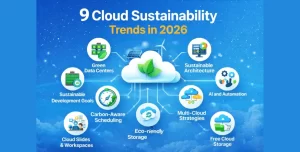
Top 10 Programming Languages to Learn for Aspiring Software Developers in 2024
Table of Contents
Introduction
Hello, aspiring software developers! WikiGlitz is here to bring you the most up-to-date insight into the top programming languages you should learn in 2024.
Whether you’re just starting or looking to expand your skill set, this guide will help you navigate the ever-evolving tech landscape.
Key Takeaways
- JavaScript, Python, and Java are essential for web development, backend development, and mobile apps.
- Emerging languages like Rust and Go are gaining traction for their performance and security features.
- Industry giants like Google, Microsoft, and Amazon are driving demand for these languages, making them valuable for career growth.
Python
Overview: Python remains a top choice due to its simplicity and versatility.
Key Features:
- Easy to learn and read
- Extensive libraries and frameworks (Django, Flask)
- Strong community support
Applications:
- Web development (Instagram, Pinterest)
- Data science and machine learning (TensorFlow, PyTorch)
- Automation scripts
Learning Resources:
- Codecademy: Python Course
- Real Python: Tutorials and Courses
Python’s versatility makes it a must-learn for any developer. It’s used in a variety of fields and has a large community, ensuring plenty of support and resources.
JavaScript
Overview: JavaScript is essential for front-end development and increasingly popular for back-end development with Node.js.
Key Features:
- Event-driven, functional, and imperative styles
- Extensive frameworks (React, Angular, Vue)
- Cross-platform capabilities
Applications:
- Web development (client-side and server-side)
- Game development
- Mobile apps (React Native)
Learning Resources:
- freeCodeCamp: JavaScript Algorithms and Data Structures
- MDN Web Docs: JavaScript Guide
JavaScript is a staple for web development. Its wide usage and growing backend applications make it indispensable.
Java
Overview: Java is a versatile, object-oriented programming language commonly used in large-scale applications.
Key Features:
- Platform-independent (Write Once, Run Anywhere)
- Strong memory management
- Multithreading capabilities
Applications:
- Android app development
- Enterprise applications (banking systems)
- Web applications
Learning Resources:
- Coursera: Java Programming and Software Engineering Fundamentals
- Codecademy: Learn Java
Java’s robustness and cross-platform capabilities make it ideal for many industries, ensuring its continued relevance.
C#
Overview: Developed by Microsoft, C# is used extensively in game development and enterprise software.
Key Features:
- Object-oriented
- Rich library support (ASP.NET for web development)
- Integrated with Windows software
Applications:
- Game development (Unity)
- Web applications
- Desktop applications
Learning Resources:
- Microsoft Learn: C# Tutorials
- Pluralsight: C# Courses
C# is perfect for game development and enterprise applications, thanks to its powerful features and integration with Microsoft products.
C++
Overview: Known for its performance, C++ is used in systems programming, game development, and real-time simulations.
Key Features:
- Low-level memory manipulation
- Object-oriented and generic programming
- Standard Template Library (STL)
Applications:
- Game engines
- Operating systems
- High-frequency trading
Learning Resources:
- GeeksforGeeks: C++ Tutorials
- LearnCPP: Comprehensive C++ Guide
C++ remains crucial for performance-critical applications. Its complexity is offset by its power and efficiency.
Go (Golang)
Overview: Go, developed by Google, is designed for efficiency and scalability in large system development.
Key Features:
- Simple syntax
- Efficient concurrency handling
- Fast compilation
Applications:
- Cloud services
- DevOps tools
- Distributed systems
Learning Resources:
- Go By Example: Practical Go Tutorials
- A Tour of Go: Official Go Introduction
Go’s efficiency and ease of use make it a rising star, particularly in systems and infrastructure projects.
Kotlin
Overview: Kotlin is primarily used for Android development and is fully interoperable with Java.
Key Features:
- Concise syntax
- Null safety
- Interoperable with Java
Applications:
- Android apps
- Web applications
- Server-side development
Learning Resources:
- Kotlinlang.org: Official Kotlin Documentation
- Udacity: Kotlin for Android Developers
Kotlin’s rise in Android development is significant, offering improvements over Java while maintaining full interoperability.
Swift
Overview: Swift is Apple’s language for iOS, macOS, watchOS, and tvOS app development.
Key Features:
- Safe and fast
- Modern syntax
- Interoperability with Objective-C
Applications:
- iOS and macOS applications
- WatchOS applications
- Server-side development
Learning Resources:
- Apple Developer: Swift Resources
- Hacking with Swift: Tutorials and Courses
Swift is essential for anyone looking to develop apps within the Apple ecosystem, known for its modern features and performance.
TypeScript
Overview: TypeScript, developed by Microsoft, builds on JavaScript by adding static types, making it ideal for large-scale applications.
Key Features:
- Static typing
- Early error detection
- Seamless integration with JavaScript
Applications:
- Large-scale web applications
- Server-side development with Node.js
- Front-end development
Learning Resources:
- TypeScriptlang.org: Official Documentation
- Udemy: Understanding TypeScript
TypeScript enhances JavaScript, making it more suitable for large projects with its static typing and error-checking capabilities.
Ruby
Overview: Ruby is known for its elegant syntax and is the language behind the Ruby on Rails framework.
Key Features:
- Dynamic and reflective
- High readability
- Comprehensive standard library
Applications:
- Web development (Ruby on Rails)
- Prototyping
- Data analysis
Learning Resources:
- Codecademy: Learn Ruby
- The Odin Project: Ruby Programming
Ruby’s simplicity and the power of Rails make it a popular choice for web development and startups.
Conclusion
WikiGlitz has brought you these insights to help you stay ahead in the software development world. The languages listed here are not only popular but also powerful tools that can open up numerous career opportunities.
Start learning today and stay updated with the latest trends to make the most out of your coding journey. Happy coding!
FAQs
Are there free resources available to learn these programming languages?
Yes, platforms like Codecademy, freeCodeCamp, and official documentation sites offer free resources.
How long does it take to learn a new programming language?
It varies, but typically it can take a few months to achieve proficiency, depending on the language and your dedication.
Want to keep up with our blog?
Our most valuable tips right inside your inbox, once per month.
Error: Contact form not found.
WikiGlitz Team
Welcome to WikiGlitz, your ultimate destination for tech insights and innovation. Our expert team is dedicated to delivering free resources and professional advice on various technology topics, including Artificial Intelligence, Cyber Security, Cloud Computing, and more. We strive to empower our readers with up-to-date information and practical guidance, ensuring you stay ahead in the rapidly evolving tech landscape. At WikiGlitz, we are passionate about making complex technology accessible to everyone. Our team of seasoned experts curates content that is both informative and engaging, helping you understand and leverage the latest tech trends. Whether you're a tech enthusiast or a professional, WikiGlitz is your go-to source for reliable, expert-driven content. Join us on this journey to explore and embrace the future of technology.





